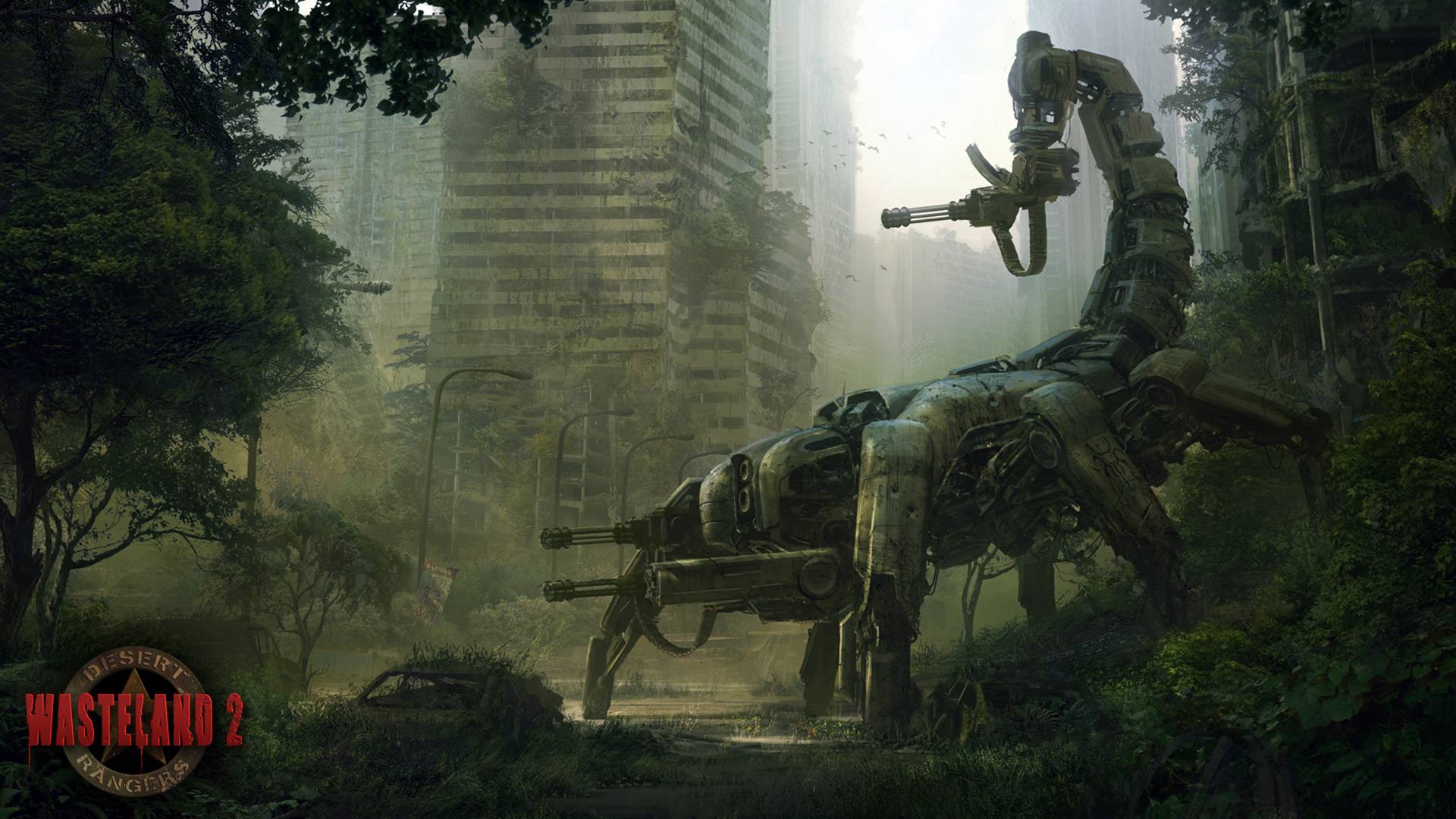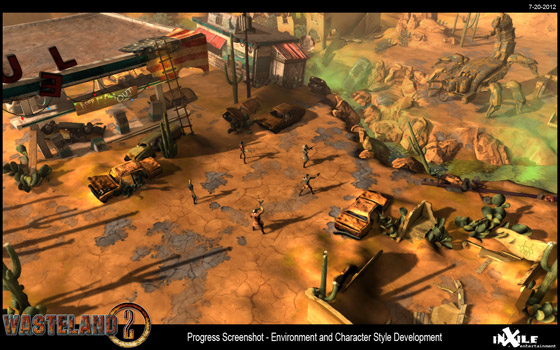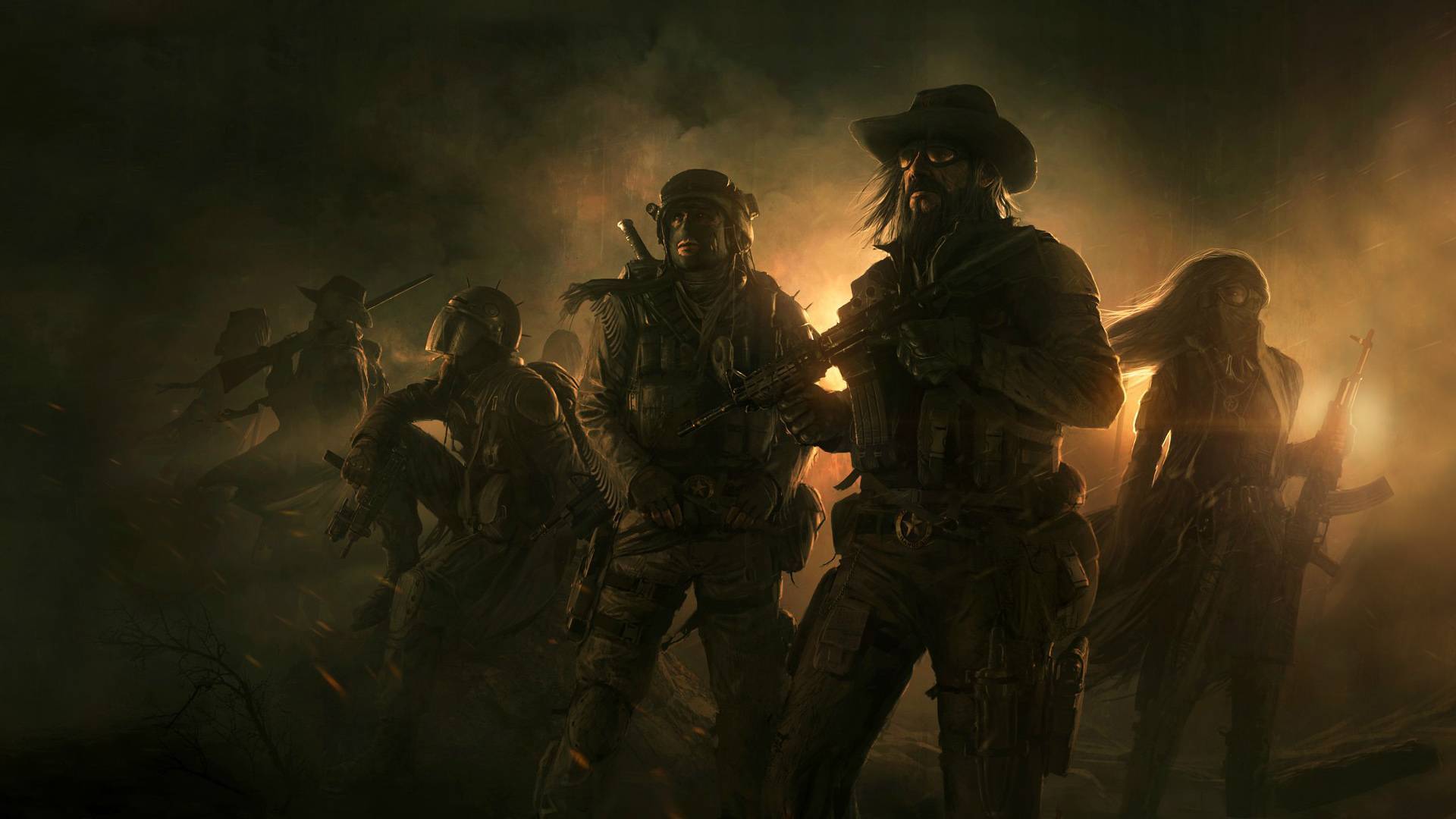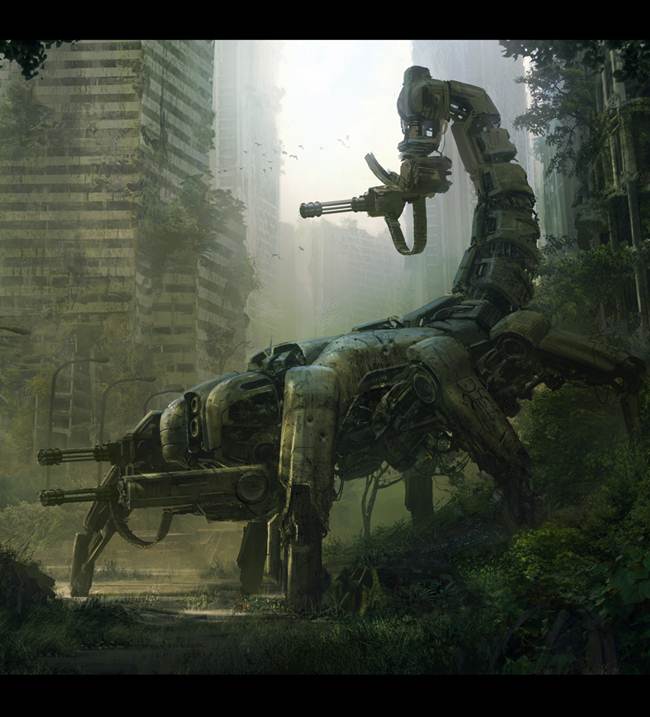
Once upon a time, in an industry not too far away, a motley crew of designers, artists and programmers came together to bring us a little game called Wasteland. As an RPG, it was incredible and would go on to serve as a big influence for other post-apocalyptic RPGs like the Fallout series.
Somewhere along the way, what made games like Wasteland so unique and sublimely awesome was lost. However thanks to a recent Kickstarter, the team at inXile Entertainment are bringing us back to that golden era of RPGs with Wasteland 2.
We recently had a chance to development director Chris Keenan about the journey leading up to the sequel, the evolution of RPGs, the design philosophy behind Wasteland 2 and – why not? – the next generation of gaming.

Ravi Sinha: So Wasteland 2. The long awaited sequel. Considering that rights for the game were picked up in 2003 and Wasteland 2 had its crowd funding campaign in 2012, what kind of journey has it been, both after the first game and leading up to the Kickstarter?
Chris Keenan: To give a bit of history, Brian Fargo and team released the original Wasteland in 1988. They had learned many lessons from the game and wanted to apply them to a sequel to Wasteland, but they couldn’t get the rights for it. Instead of selecting a new project, they started a new post-apocalyptic game, which was Fallout.
As you said, he didn’t get the Wasteland rights back until many years later. Once we had them, our team immediately began to put together a pitch and shopped it around to publishers. Brian was getting peppered with fan requests for a sequel, but we had zero interest from publishers. After making the rounds to every major publisher, he shelved it and figured it was dead.
There was obviously a disconnect between the level of interest from fans and publishers,but not much we could do about it. Cue Kickstarter and Double Fine’s success. As soon as Brian saw that, we immediately got started dusting off the pitch documents and preparing for our first Kickstarter. Luckily, the Wasteland community won in the end and we’re developing it right now.
"Hearing a backer say that they have no idea how they’re going to pay rent next month since they want to spend $1,000 to have an NPC in the game is both motivating and terrifying. "
Ravi Sinha: How did things go over at inXile when the Kickstarter had wrapped up and it was made known that “Hey, a lot of people really want to play this game”?
Chris Keenan: It’s been the high point of my career. We had no idea if the Kickstarter would grab hold or not. Tim Schaefer hit it out of the park, but many people were saying it was a one off and it would never be a way to finance games for mid-sized teams. We were hoping people would like the ideas but didn’t expect the response that we had. Not only did a lot of people want to play the game, but they were invested in its success.
Our president, Matt Findley and myself answered every private message that was sent to us during the Kickstarter drive. We were at our computers for 18 hours a day until it ended, replying to fans. During this month, we had a paradigm shift on the developer/gamer relationship. Traditionally for most independent developers, there is a bit of a disconnect between the development team and the audience that plays the game. The publisher handles most of the intermediary dealings and tends to control the release of information on a game project.
Now we were communicating directly with the fans about a game that hasn’t been made yet. Not only were they funding the development of the game, but we found out how useful it was to get feedback early and often in the pre-production and design phase. Hearing a backer say that they have no idea how they’re going to pay rent next month since they want to spend $1,000 to have an NPC in the game is both motivating and terrifying. These people trust you with their hard earned money and you know you have to deliver. We are truly making the game for our fans now and we hear their feedback every step of the way.
17 minute gameplay trailer.
Ravi Sinha: With Obsidian Entertainment, Fallout 1 & 2 composer Mark Morgan, Planescape: Torment writer/designer Colin McComb and of course, the producer of the first game, Wasteland 2 is certainly brimming with industry and RPG legends. How was such a team assembled for the project?
Chris Keenan: Everything about the way we’ve planned, financed and built this project is different from the way we’ve worked over the past 10-15 years. We have our core implementation team that has worked together for a while and just thought, “If we can have anyone we want for this title, how would we do it?”.
Brian immediately reached out to many members from the original team for design help. Being that we are not working with a publisher it, we could make decisions that would have been sticky to figure out, like bringing on Chris Avellone. Being that he’s CCO of Obsidian, it would potentially scare publishers due to him knowing “trade secrets” about the game, but Brian has worked with the Obsidian guys for many years and knows he can trust them. We’ve developed a very close relationship with Obsidian and will continue to scratch each others backs.
"The citizens of the Wasteland have literally had a trial by fire and after a hundred years of being in pure survival mode, they don’t necessarily operate on logic that we’d hold true in our current world."
Ravi Sinha: Given the divide that has taken place between the first Wasteland and the current crop of RPGs, how does inXile deal with translating its vision? Is it like the Expendables, where you guys make magic but are really getting too old for this?
Chris Keenan: Hah, not at all. We’ve got a great development team at inXile right now. I’ve been here for over 10 years now and I believe it’s the best team we’ve ever had. It’s been a huge rejuvenation for many of us. Brian has said in interviews that it’s been his career defining moment and I have no doubt about that. He’s been involved every single day and even creating levels for the game, which you generally don’t see many executive producers do. Our vision is crystal clear.
We want a heavily reactive, isometric, party based game with an old-school feel, turn-based combat and heavy narrative movements throughout. We’ve defined that vision from numerous internal meetings but also through close communication with our backers and fans. It has been nailed into our heads and as we’re continuing on through production, we see it forming into what we’ve all hoped.
Ravi Sinha: Wasteland 2 follows a post-apocalyptic band called the Desert Rangers as they struggle in a world gone to ruin and help other survivors. But given the spate of post-apocalyptic stories in the past decade – both in gaming and otherwise – not including titles which are yet to come, what is it about the concept that Wasteland 2 makes its own?
Chris Keenan: There are a few core concepts that the original executed on that we’re holding onto tightly. First, it’s a party based game. You create 4 desert rangers and give each one unique tools to be able to navigate and explore the Wasteland. Along the way you can pick up additional companions that each have their own personalities.
While they will add additional firepower and help, they won’t always listen to you when you tell them what to do. One of my companions might not like stray cats so instead of shooting at a synth during combat, he explodes the stray with a grenade. How you deal with that is up to you. Maybe his skills are good enough that you just put up with it, or maybe you kick him out of your party or even kill him. Another major element we are sticking with is the extremely heavy literary feel.
The original game was working with technology and memory constraints so much of what was in the world was given to the player in text as you explored. We’re keeping those elements in as we want to make the detail bigger than what we can simply show. Wasteland never took itself too seriously. While it deals with mature and serious subject matter, it’s presented in a twisted and curious way.
Ravi Sinha: We’ve seen this post-apocalyptic set-up culminate in either finding a MacGuffin to save the world and usher in a new age of man or in exploring the so-called wasteland and making one’s own choices a la Fallout. Will Wasteland be in either direction, a mix of both or completely out of left field with its plot?
Chris Keenan: Well, being that Wasteland was the original Fallout, Brian and his team decided to keep a moderately similar high-level story feel. Neither were about saving all of humanity and bringing pixie-dust and smiles to all. Wasteland was all about the moments you came across while trying to bring about a bit of order and navigate issues as they came up.
The setting is pretty bleak and there really is no way to “save the world” even if you wanted to. The citizens of the Wasteland have literally had a trial by fire and after a hundred years of being in pure survival mode, they don’t necessarily operate on logic that we’d hold true in our current world.

Ravi Sinha: In regards to its design, was there always that desire to make Wasteland 2 a throwback to the classic RPGs of yore?
Chris Keenan: We went through a bunch of design ideas when thinking about what Wasteland 2 would be, but many of the elements that stuck kept that familiar feel from games of the past. As we continued to communicate the vision to our community prior to the Kickstarter release, we kept hearing how much people missed that classic play experience and knew it was the right decision for the game.
At the time, I think there was a feeling over the game development community that many game systems evolved out of necessity to a more mass market friendly approach. Publishers weren’t funding deals unless your game could sell a million units and that generally tends to remove the option of more hardcore game systems from the designs. Our approach is that we don’t care about the mass market. Our 65,000+ backers want a more deep detail and stat oriented game.
Ravi Sinha: Speaking on Fallout 3 – and on Western RPGs in general – what are your thoughts on their evolution in the past two decades?
Chris Keenan: The first thing that comes to mind is that as technology continued to get better and better, developers were able to make the world larger in scale and look more amazing. Many of the games took on a more epic feel to them. Consoles were continuing to make their rise and teams began to adapt their designs for consoles first, PC second. Simply due to the inputs, it requires different designs of your core features. Graphical fidelity improved, production value improved and size increased.
This requires a massive team to do correctly. Personally, I feel like many of them traded size and visuals for depth though. When you’re spending so much time and money creating content, it’s hard to say “you know, if the player makes decisions A,B and C, they don’t get to play this other area…it’s been destroyed before they got there”.
That’s a powerfully reactive moment but hard to justify when building that area cost you 3 million dollars and 6 months of production time. We are focusing on bringing back that serious depth as one of our top priorities.

Ravi Sinha: Has there been a major evolution in player choice since the original Fallout came out or are we still on the cusp of brilliance?
Chris Keenan: Fallout was a great example of a game that had a major impact on how game designers look at creating interesting choice for players. It doesn’t always have to be black and white. Our world is filled with grey areas. People’s intentions don’t always bring the result or action they want and it shouldn’t be that way in all games.
There is always room for improvement in evolving this type of moral decision element. I’m not sure that there is a “cusp of brilliance” era but instead moments of brilliance that happen along the way. As long as we keep evolving the genre, I feel like we’re doing our jobs.
Ravi Sinha: Finally – and this is out of left field – what are your thoughts on the next generation of consoles? Will we see inXile take on a role in the days to come for next-gen development?
Chris Keenan: Things change so damn fast, it’s hard to keep up. I’m all for new technical and creative input changes with the consoles but not a fan of the closed environments. So many hoops and additional layers are necessary to get on them. Our PC/Mac/Linux crowd has been incredibly good to us and we don’t see any need to worry about consoles at this point. Our backers specifically funded those 3 versions and that’s all we’re focused on right now.














